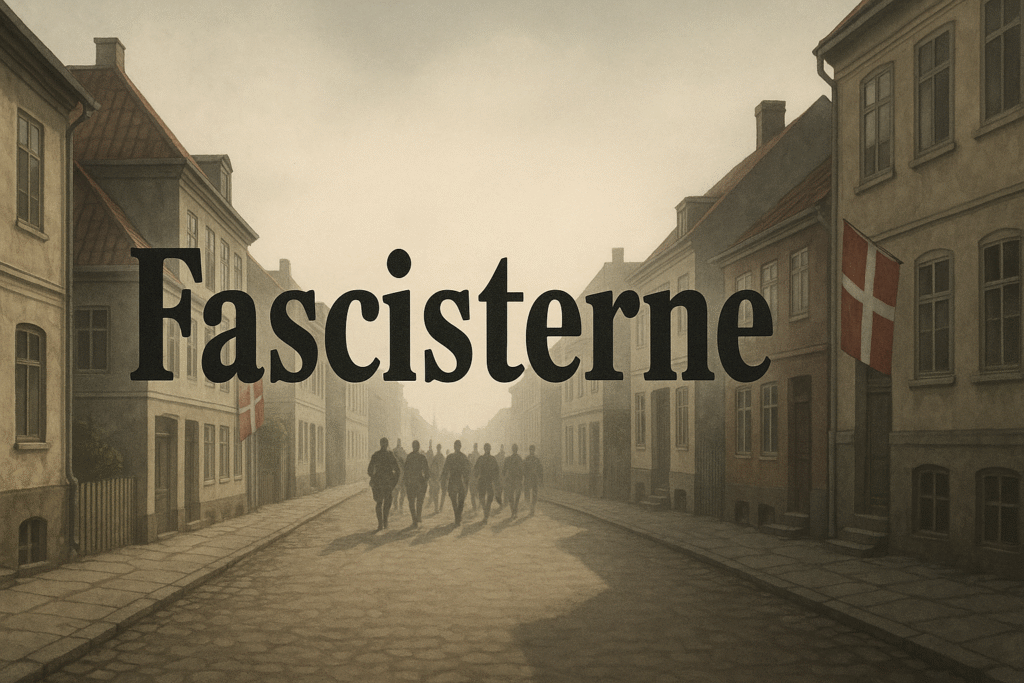Fascism is a term that often evokes strong reactions. The ideologies associated with Fascisterne have left indelible marks on the fabric of society and politics throughout history. But what does it mean today? As we navigate an era filled with political polarization, understanding this complex ideology becomes essential. How did Fascisterne rise to prominence, and how does its legacy influence modern discourse? This exploration delves deep into the origins, impacts, and tactics of fascist ideology while highlighting the importance of recognizing these patterns in our current political landscape. Join us as we uncover the threads connecting yesterday’s fascism to today’s conversations—it may just change how you view the world around you.
The Rise and Fall of Fascism
Fascism emerged in the early 20th century as a reaction to economic turmoil and political instability. Its roots lay in post-World War I discontent, particularly in Italy and Germany. Leaders like Benito Mussolini and Adolf Hitler capitalized on national grievances to rally support.
This movement thrived on authoritarianism, nationalism, and anti-communist sentiments. Charismatic leaders used propaganda effectively, creating a cult of personality that attracted many followers. The promise of restoring national pride resonated deeply with those feeling disenfranchised.
However, fascism’s violent policies ultimately led to its downfall during World War II. The relentless expansionist ambitions sparked global conflict. As the war progressed, the devastating consequences became apparent—genocide, oppression, and widespread destruction marked this dark chapter.
In its wake came a profound rejection of fascist ideologies in many parts of the world. Yet remnants lingered within society’s shadows, influencing political movements even today.
Understanding Fascisterne: Origins and Ideology
Fascisterne emerged in the early 20th century as a response to political and social upheaval. Its origins can be traced back to post-World War I Europe, where national disillusionment fueled radical ideologies.
At its core, Fascisterne champions extreme nationalism. It emphasizes the supremacy of the state over individual rights. This ideology often manifests through authoritarian leadership and centralized control.
Racial purity is another pillar of Fascisterne’s belief system. The movement promotes an exclusionary view that elevates certain groups while marginalizing others. This divisive stance has left deep scars on society throughout history.
Fascisterne’s glorification of militarism further distinguishes it from other political movements. A focus on strength and conquest becomes central to its narrative, appealing to those seeking decisive action in chaotic times.
Understanding these foundational elements sheds light on how such ideas persist today, affecting current political climates worldwide.
Fascisterne’s Impact on Society and Politics
Fascisterne has left an indelible mark on society, shaping political landscapes in profound ways. Its ideology resonates with a segment of the population seeking strong leadership and simplistic solutions to complex issues.
The allure of Fascisterne lies in its ability to exploit fears and frustrations. It transforms societal discontent into a rallying cry, often scapegoating marginalized groups while presenting itself as the savior of national identity.
Politically, it has influenced mainstream parties to adopt more extreme rhetoric and policies. The normalization of such ideas creates an environment where hate speech can thrive without consequence.
Grassroots movements inspired by Fascisterne challenge traditional democratic values. They encourage divisiveness rather than unity, reshaping conversations around governance and civic responsibility.
As these impacts unfold, they demand critical examination from all corners of society. Understanding how Fascisterne operates is essential for fostering resilience against its pervasive influence.
How Fascist Tactics are Used in Modern Political Discourse
Fascist tactics have found a new home in contemporary political discourse. Politicians often resort to fearmongering, painting opponents as existential threats. This creates an “us vs. them” mentality that polarizes society.
Rhetoric that distorts the truth is also common. Misinformation spreads rapidly through social media channels, shaping public perception and undermining rational debate.
Emotional appeals replace logical arguments. By invoking strong feelings like anger or nostalgia, leaders can rally support for their agendas while sidelining critical thinking.
Additionally, scapegoating minority groups has resurfaced as a strategy to unify certain voter bases against perceived enemies. This tactic diverts attention from pressing issues by creating a convenient target.
The glorification of nationalism can be seen everywhere today—often at the expense of global cooperation and understanding. These strategies are not just remnants of history; they are actively reshaping how we engage with politics today.
The Danger of Normalizing Fascist Ideas
Normalizing fascist ideas is a slippery slope. When extreme views become commonplace, they chip away at the foundations of democracy and civility.
This normalization creates an environment where hate speech can flourish. It emboldens individuals to express intolerance under the guise of free speech. What starts as casual rhetoric can quickly escalate into harmful actions and policies.
Moreover, desensitization occurs when society hears these ideologies repeatedly. People may begin to accept extremist beliefs as part of everyday discourse rather than challenge them.
The danger lies in complacency. If we overlook or dismiss these ideologies, we risk repeating history’s darkest chapters. Critical thinking and open dialogue are essential tools for combating this trend.
It’s crucial to recognize and address such narratives early on before they gain further traction in our communities and political systems. Awareness is key; vigilance must be maintained against all forms of extremism.
Combating Fascist Ideology: Strategies for Individuals and Society
Combating fascist ideology requires both individual and collective action. Education is a powerful tool. Understanding history helps us recognize the warning signs of rising extremism.
Engaging in open dialogue fosters critical thinking. Encouraging conversations about values promotes tolerance and compassion. Communities can host workshops or seminars to explore these topics further.
Supporting local organizations that champion human rights strengthens societal resilience. Volunteering time or resources amplifies their efforts against hate-based ideologies.
Digital literacy also plays a vital role in this fight. Teaching others how to identify misinformation online can reduce the spread of harmful ideas.
Participating in peaceful demonstrations shows solidarity with marginalized groups. Visibility matters; it sends a clear message against intolerance and division.
Cultivating empathy within ourselves creates an environment where fascist thoughts struggle to take root. Every effort counts when building a more inclusive society free from extremist influences.
Conclusion
The legacy of Fascisterne remains a potent force in shaping political narratives today. Its origins and ideologies continue to echo through modern society, influencing language, policy, and public sentiment. Awareness of these influences is crucial as they can subtly infiltrate our conversations and actions.
Recognizing the tactics derived from fascist strategies helps us navigate contemporary discourse with a critical eye. It’s essential for individuals to educate themselves about these patterns and challenge them when they arise. Engaging in thoughtful discussions can dismantle harmful rhetoric before it takes root.
Moreover, fostering an environment that values diversity and pluralism acts as a bulwark against the normalization of fascist ideas. Communities must come together to support inclusive dialogue while being vigilant about extremist rhetoric.
By staying informed, questioning narratives, and promoting empathy over division, we can combat the resurgence of such dangerous ideologies effectively. The strength lies not only in awareness but also in action—individually and collectively we hold power to shape a more just society free from the shadows of Fascisterne’s influence.

